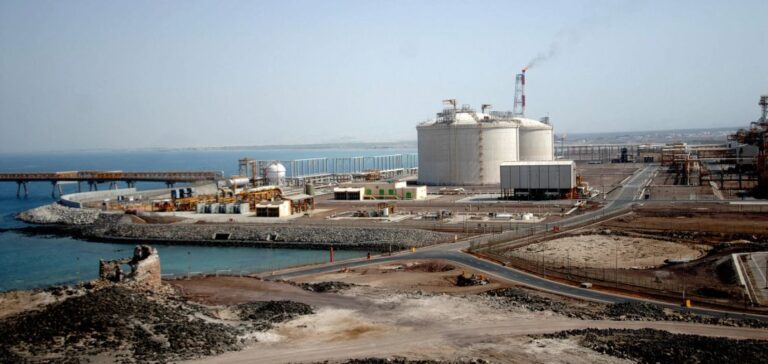Since the onset of Yemen’s civil war in 2014, the country has witnessed a dramatic decline in its oil and gas production. Once a significant player in the global energy market, Yemen’s oil production peaked at 450,000 barrels per day (b/d) in 2001. However, today it struggles to maintain even 10,000 b/d, a drop largely attributed to the depletion of oil fields, lack of investment, and widespread destruction from the war.
Decline in Oil Production
Yemen’s Oil Minister, Saeed Suleiman al-Shamasi, expressed significant concern at the EYGPES conference in Cairo on February 17, 2025. He called for Iran to end its support for the Houthi rebels, who have targeted the country’s energy infrastructure. These attacks have led to a loss of over $2 billion in oil and gas revenues.
Yemen LNG, the country’s sole liquefied natural gas (LNG) exporter, has had to cease operations due to the ongoing war. The Balhaf terminal, with an annual export capacity of 6.7 million metric tons, remains closed due to Houthi occupation and attacks on oil infrastructure. This situation has halted business relationships, particularly with companies such as Total and Kogas.
Challenges for Yemen in Reviving Gas Exports
Natural gas, once exported mainly to East Asia, could provide the necessary funds for Yemen’s reconstruction. However, the war and the Houthis’ control over key energy infrastructure make these efforts difficult. Minister al-Shamasi emphasized that only the end of Iranian support for the Houthis could allow for the resumption of natural gas exports and help revitalize Yemen’s economy.
The Geopolitical Role of Iran in the Crisis
Iran’s support for the Houthis is part of a broader regional strategy to expand its influence in the Middle East and counter Saudi and UAE dominance. The Houthis have managed to maintain control over strategic territories while developing sophisticated weapons, including missiles capable of disrupting vital maritime trade in the Bab el-Mandeb Strait and the Gulf of Aden.
International Sanctions and Lack of Investment
On February 17, 2025, the United States intensified its pressure by imposing sanctions on Iranian and Houthi-linked entities involved in oil and petrochemical trade. These sanctions aim to reduce funding for destabilizing activities and weaken the Houthis while reinforcing the international call for Iran to cease its support for the Houthis.
Despite these measures, the conflict remains deeply entrenched, with peace negotiations stagnating. The Houthis, demanding a substantial share of future oil revenues, complicate efforts to find a unified solution, as both sides vie for control over the country’s energy resources.
Humanitarian and Economic Impact of the Conflict
The humanitarian impact of the conflict is devastating. Yemen, already one of the poorest countries in the Arab world, is suffering greatly from the destruction of essential infrastructure. Millions of displaced people and hundreds of thousands of victims are facing an increasingly dire humanitarian crisis, exacerbated by the war and destruction of energy resources.
Impact on the Global Energy Market
The impact of Yemen’s energy production decline extends beyond the country’s borders. The disruption of oil and gas exports, particularly in a region crucial for global maritime trade, has repercussions on global energy supplies. The Bab el-Mandeb Strait, linking the Red Sea to the Gulf of Aden, is a strategic passage for oil tankers, and any disruption in this area has ripple effects on global energy markets.






















